Jailtime for Retro Game Console Reviews? Italy’s Copyright Enforcement Sparks Debate
Italian YouTuber raided over handheld review, faces possible jail time.


The year 2021 is coming to an end. Linux has been making headlines this year as well, and not always in a good way.
Let me share some of the biggest stories from the world of Linux that impacts the users of Linux in general and desktop Linux in particular.
Free Software Foundation’s founding President Richard Stallman was forced to resign after a media outrage in 2019. The iconic hippie techie made a surprise comeback announcement during LibrePlanet event in March.
Though Stallman started the Free Software movement and founded the Free Software Foundation (FSF) in the 80s, he returned as one of the board directors, not as its President.
The episode divided the open source world once again. Many organizations and developers opposed his return. At the same time, Stallman also got overwhelming support from non-USA developers.
Though Stallman apologized, many people from GNOME and Open Source Initiative advocated to remove entire FSF board.
Many major sponsors severed their ties with FSF but remained adamant among the financial difficulties. 2021 is coming to an end and Stallman remains on the board of the organization he founded more than 30 years ago.
Not a graphical one though.
You probably already know that installing Arch Linux is not as easy as installing Ubuntu or Fedora. There is no graphical installer. Everything has to be done via the command line but even for that you have to refer to some documentation.
Arch Linux tries to improve the situation by providing a helpful script that could guide you for the installation.
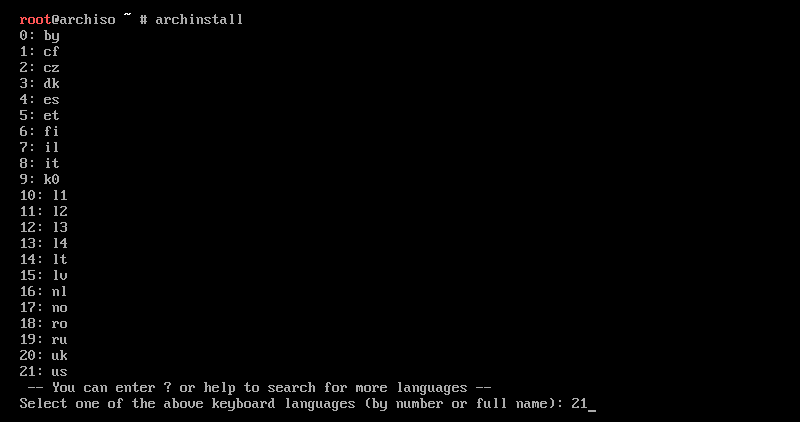
Of course, it is not as comfortable as a graphical one but at least the guided Arch Linux install is better than none.
This archinstall script is available in the newer Arch Linux ISO can can be accessed by typing archinstall in the TTY while installing Arch Linux.
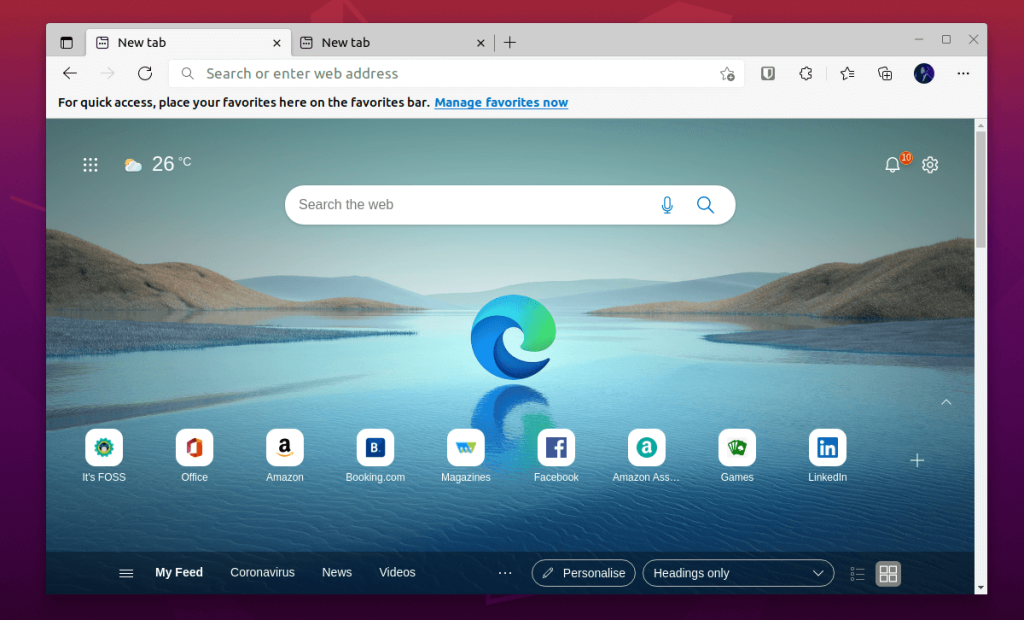
It was already in beta for over a year, but 2021 sees the final stable release of Microsoft’s Chromium-based Edge browser for Linux.
I know some Linux users are completely against touching anything Microsoft and that’s fine. It just adds one more option to the long list of available web browsers on Linux. People who use Edge on Windows systems now have the ability to use and sync their browser activity on Linux.
Several users who installed Edge browser on Linux found it surprisingly good. Personally, I still prefer Firefox over any other browser but if Edge could bring Ultra HD or Full HD Netflix streaming to Linux, it could become my secondary browser.
Red Hat shocked the Linux world last years when it decided to kill the stable CentOS in favor of the rolling release version CentOS Stream.
This gave birth to several CentOS replacement distributions. Two distros that got the most of the popularity and CentOS’ market share are Rocky Linux and Alma Linux.
Rocky Linux is created by Gregory M. Kurtzer, the original creator of CentOS.
Alma Linux is created by CloudLinux, an enterprise which was already providing CentOS based servers and kernel patching service.
These two distros have captured the market left open by CentOS. Red Hat’s plan of giving free RHEL licenses to small businesses was not as successful.
Valve announced a handheld gaming device called Steam Deck. It generated quite a buzz and sold out on pre-orders.
How does it relate to Linux? For two reasons.
First, Steam Deck runs a custom Steam OS based on Arch Linux. Considering that the games will be running on a Linux-based OS, this gives hope for gaming on desktop Linux as well.
Second, Steam claimed that all games (whether they are Windows-only) will run on Steam Deck. That’s too big a claim but Steam has started verifying games that work with Deck. This could mean the Deck verified games should work well on desktop Linux as well.
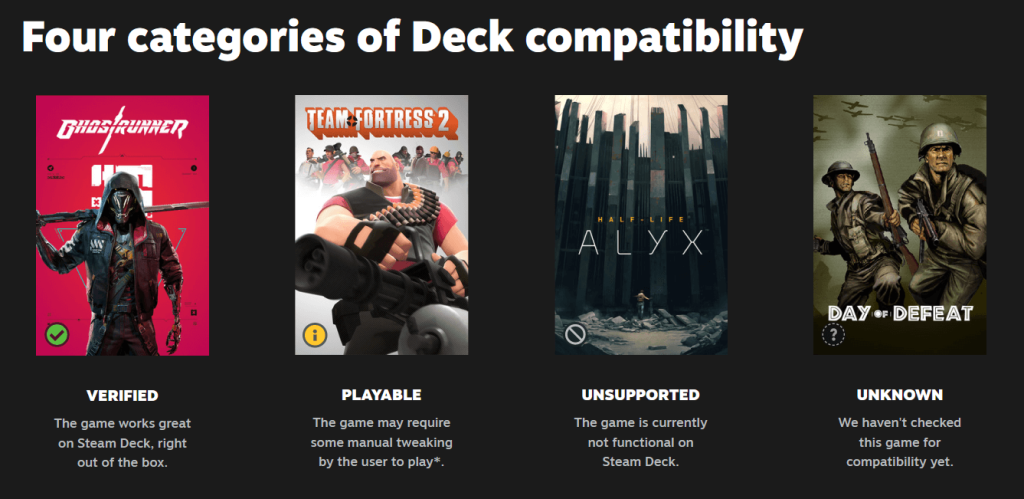
Another big news for Linux gamers in 2021. Epic Games added complete Linux support for its Easy-Anti Cheat service, along with official SteamPlay (or Proton) and Wine compatibility.
The Easy-Anti-Cheat is industry-leading anti-cheating service from Epic that prevents hacking and cheating in multiplayer PC games.
This is a big move because Linux gamers were often banned from many popular multiplayer games like Fortnite, Battlefield. With the anti-cheat support added, playing mainstream multiplayer games becomes easier on Linux.
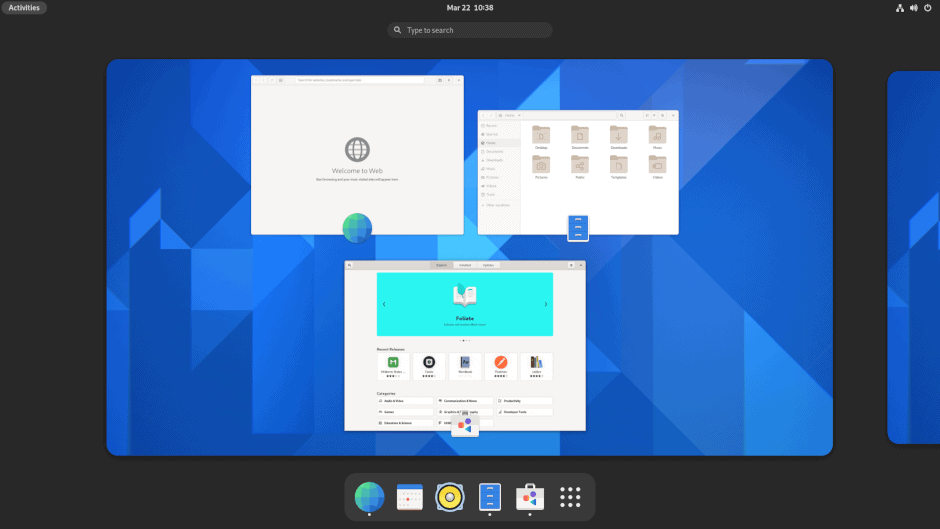
GNOME 40 was a radical release. Almost as radical as GNOME 3.
No, jumping the versioning number from 3.38 to 40 is not the crucial factor here.
GNOME 40 switched to a horizontal layout with three finger swiping. This horizontal approach made the version 40 a lot different in UI and UX from its predecessors.
This may not look like a lot but proper driver support for NTFS file system in Linux Kernel is a big deal for many, specially for shared partitions.
Until now, NTFS file system was used in the userspace (FUSE) with the help of ntfs-3g packages. This meant slow read and write of data.
The native driver improves the performance of NTFS filesystem in Linux.

Linux kernel is older than many Linux users. It was started in September 1991 when Finnish computer science student Linus Torvalds announced this ‘hobby project’ which was not supposed be ‘big and professional’.
Torvalds completed his Master’s degree with the Linux project as his final thesis. Little did Torvalds knew that his ‘hobby’ will become the backbone of today’s IT world and the face of a successful open source project.
Another Linus that put Linux in the limelight.
One of the top tech YouTuber, Linus Sebastian, began a challenge to use Linux as his daily driver for 30 days.
A popular YouTube with millions of subscribers covering Linux. This was a huge opportunity, a big PR for the desktop Linux to be seen by millions of Windows users.
But it went wrong. Horribly wrong, actually.
Linus Sebastian had a difficult time with Linux. He struggled at most points and ended up destroying his Pop!_OS install while trying to install Steam.

I wonder if Torvalds saw any of those videos where his namesake struggled so much with his creation.
An apple made the world aware of gravity (though it already existed). An Apple made the world aware of ARM processors (though it already existed).
Apple’s ARM based M1 series is a huge hit among the users for its performance boost. There is a dedicated project Asahi that is working to make Linux work on the Apple M1 devices.
The year 2021 saw some good progress by Asahi Linux. Their work is going to benefit other distributions as well.
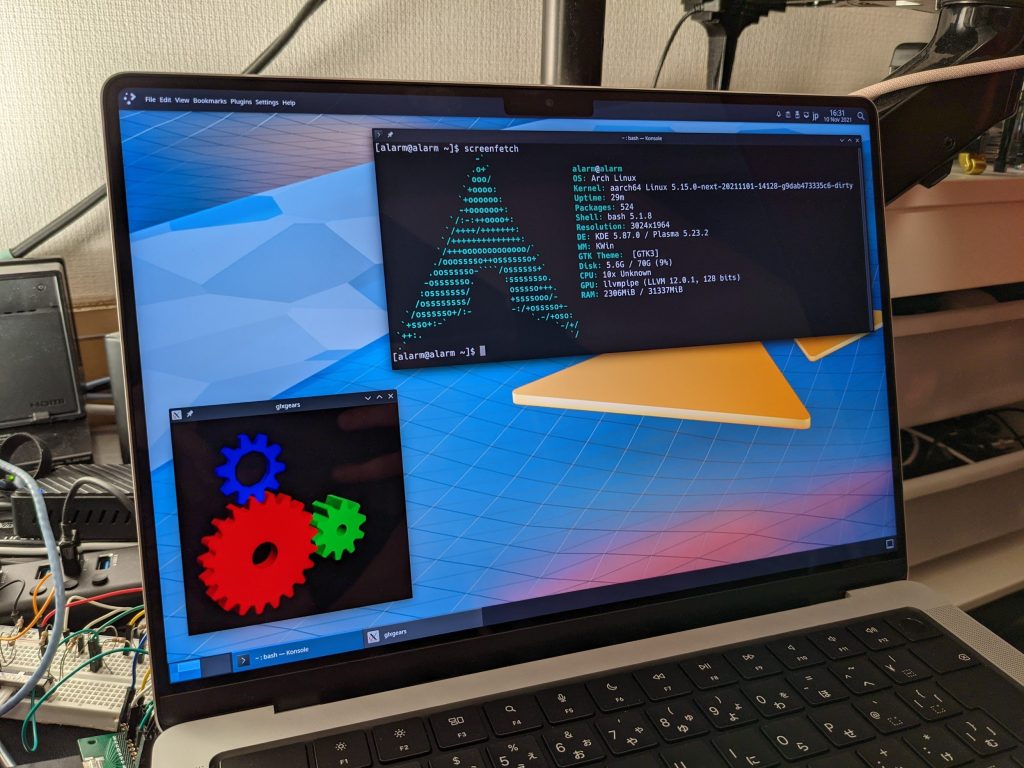
How come Windows 11 release relates to Linux? Because not all existing systems are eligible to run Windows 11. This means when Windows 10 support ends, there will be a good bunch of devices running an obsolete operating system. Some of them would move to Linux.
Don’t think I am over optimistic. I have seen this when exodus when Windows XP support ended. A number of Linux Mint and Zorin OS users are Windows XP migrants.

The COVID-19 epidemic that started in 2020 continued to trouble the world this year as well. Looking at how Omicron variant is spreading, things do not look too bright for 2022 as well.
But let’s not be too pessimistic and celebrate this festive season with hope that the next year will be better for desktop Linux users and everyone else.
Stay updated with relevant Linux news, discover new open source apps, follow distro releases and read opinions